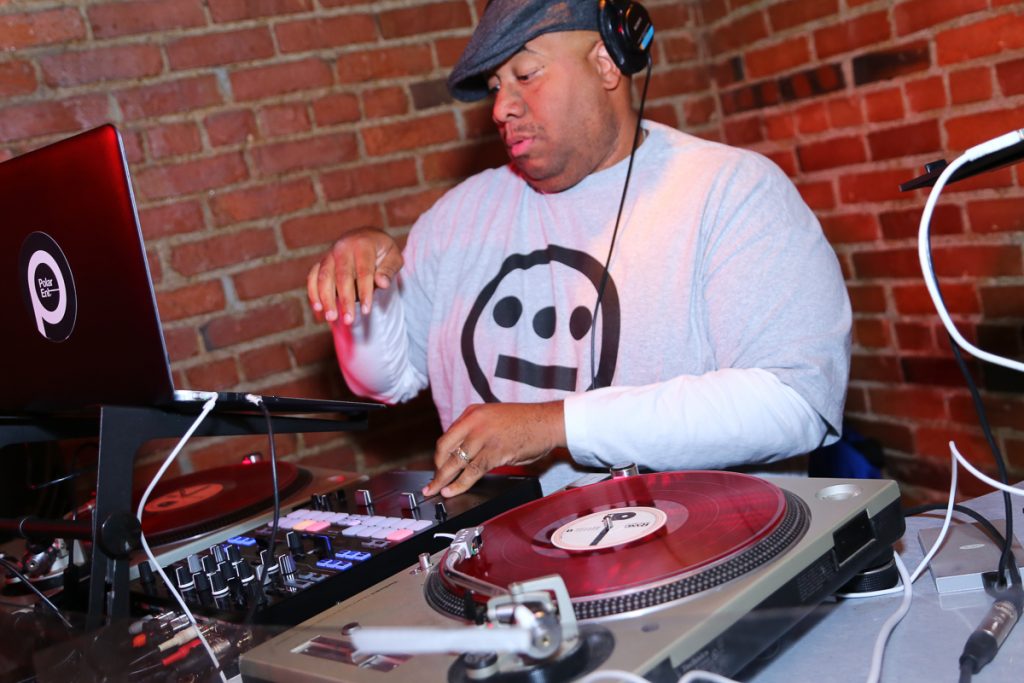Culture
Patton College of Education Introduces Hip-Hop Based Education Curriculum
By: Emily Votaw
Posted on:
Dr. Jason Rawls has intertwined his two passions, education and hip-hop, to create Ohio University’s Hip-Hop OHIO Patton Education (HOPE) program, kicking off this fall.
Rawls brings his experience as an educator, author, DJ, and hip-hop producer (of acts such as The Beastie Boys, Mos Def, and Talib Kweli) to the program, which focuses on implementing the theoretical constructs of Hip-Hop Based Education (HHBE) in the context of the Patton College’s Teacher Education program.

While HHBE has been widely studied and championed by many in the field of education, Rawls said HOPE is the first instance of HHBE being implemented as a part of a Teacher Education program, which is the fundamental education necessary for pre-service instructors to obtain teaching licenses.
Rawls said his work with HHBE is influenced by his experience entering the music industry in the late ’90s.
While attending the University of Cincinnati during his undergraduate career, Rawls met Blackstar, the NYC hip-hop duo made up of Yasiin Bey (Mos Def) and Talib Kweli, through a Cincinnati-based producer who was working with the group. Subsequently, Rawls was asked to submit some beats to be used on one of Mos Def’s albums.
“I was blessed that they chose a couple of my tracks — that really started my career. That was really my entrance into the music industry, as well as learning so much about it,” said Rawls. “I had to learn the ins and outs of the music industry, and I had to learn it through experience. That’s the most important intersection because I use my experience as a hip-hop producer, DJ, et cetera – but it’s also about the culture of hip-hop, I grew up in that culture. I consider myself a hip-hop person, it’s what I do. I love it. I live it. I talk like it. I dress like it. I am hip-hop.”
In 2019, Rawls collaborated with educator and artist John Robinson to write Youth Culture Power
A #HipHopEd Guide to Building Teacher-Student Relationships and Increasing Student Engagement.
“When we’re dealing with students who feel the same way I do about hip-hop — they talk it, they live it, they dress it, they are hip-hop — why wouldn’t we use hip-hop to help build relationships and connections with our students? That’s really the premise of Youth Culture Power,” said Rawls. “If educators cut the student’s culture out, they’re missing a part of who that student is. So yeah, I can force feed them the ABCs and one, two, threes. But if I am sensitive to their culture, and cultivate their culture and make an effort to learn it from them and to listen to them, then they’ll take a little bit more from when I teach them their ABCs and one, two, threes.”
“I use my experience as a hip-hop producer, DJ, etc. – but it’s also about the culture of hip-hop, I grew up in that culture. I consider myself a hip-hop person, it’s what I do. I love it. I live it. I talk like it. I dress like it. I am hip-hop.” – Dr. Jason Rawls
Rawls emphasized that the approach to HHBE outlined in Youth Culture Power and integrated into the HOPE program is not only for educators working specifically with students who identify with hip-hop culture.
“If you’re going to be an educator and you think you may be in either a rural or an urban setting, our program will help you understand how to work with those students and their culture. For instance, what about students who are into video games or skateboarding culture?” said Rawls. “It’s the same concept. So what we teach teachers to do is how to use culture as a connector to help build up trust and relationships with your students. It works really, really well, because what happens is the student enjoys teaching. You learn from the student, and then in turn, you teach them what they need to know from you.”
This fall, the Patton College will also introduce the Brothers Rallying to Inspire and Shape Education (Brothers RISE) Initiative, which is separate but related to the HOPE program. Rawls said Brothers RISE is focused on addressing the distressing lack of Black male teachers in the United States.
“The point of Brothers RISE is to recruit African American males, retain them, and graduate them,” said Rawls, who emphasized again that the HOPE program is absolutely open to all students regardless of their identity. “The HOPE curriculum is for everybody because everybody can learn from it, and we also think everybody will enjoy it.”

